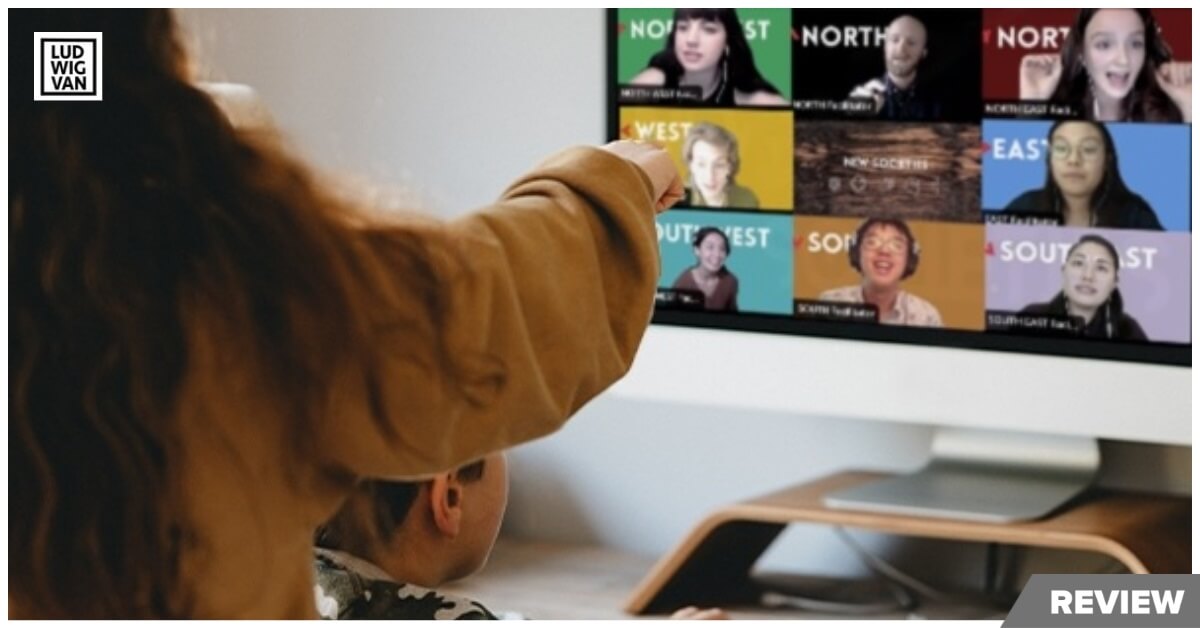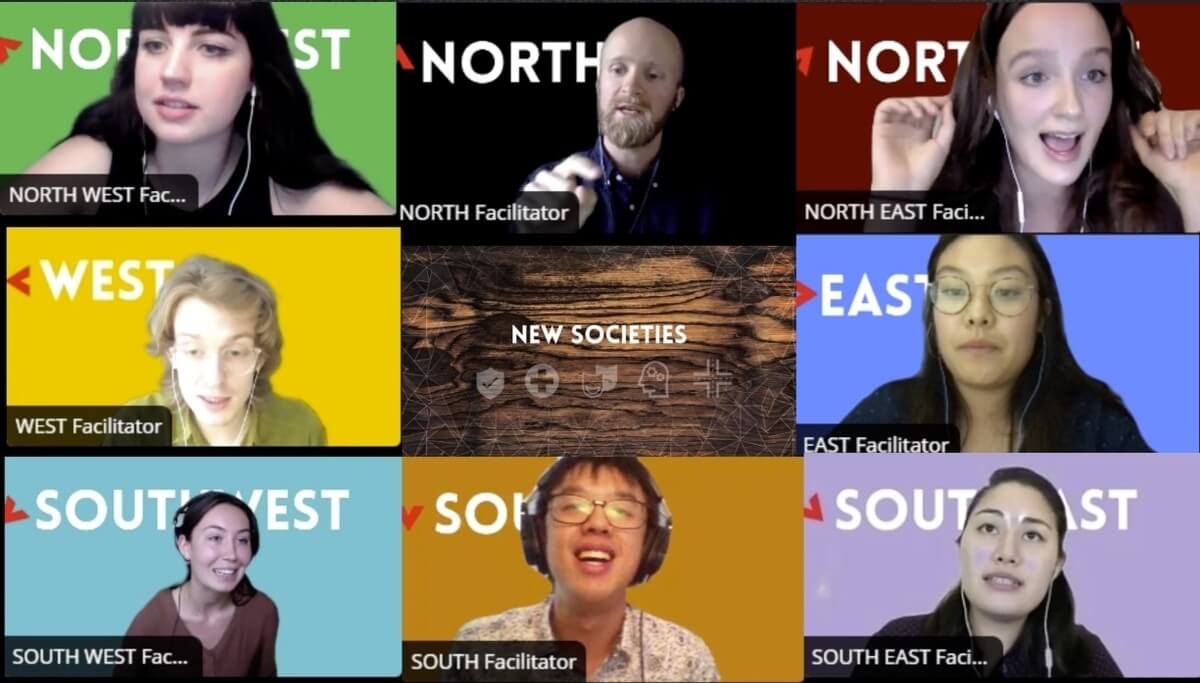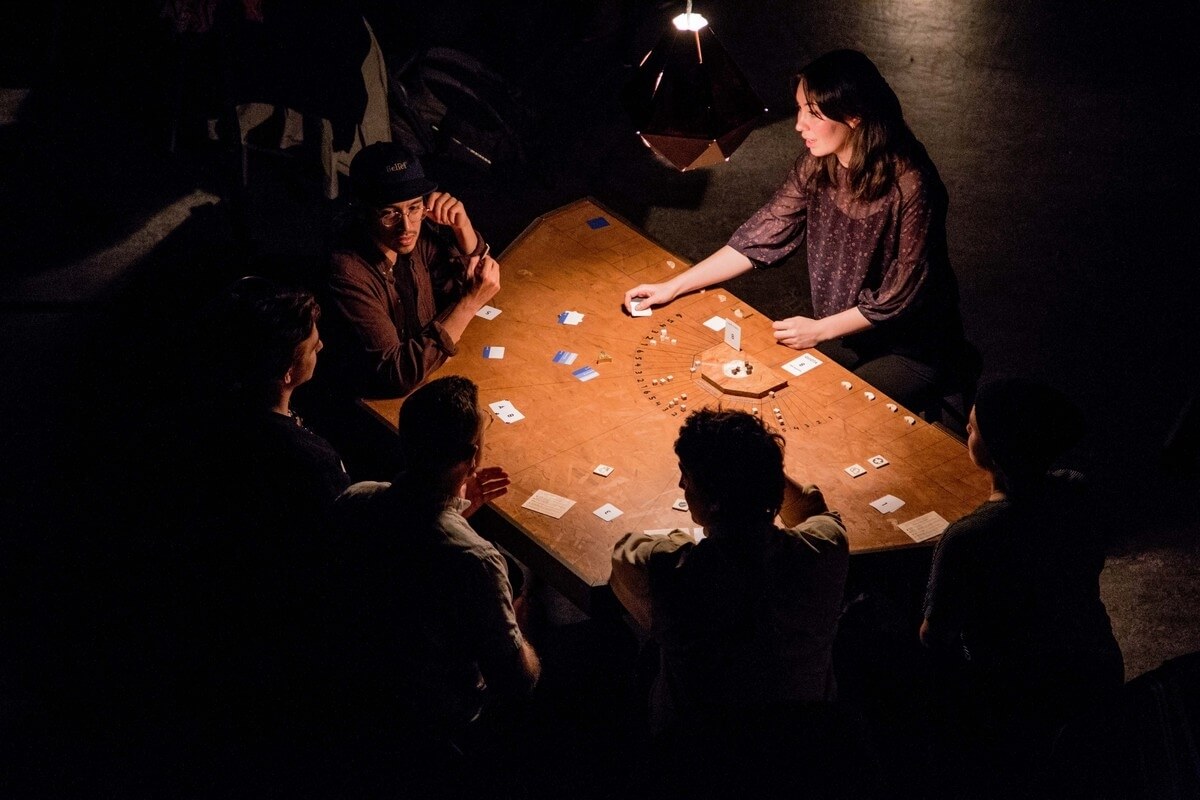
Crow’s Theatre & Re:Current Theatre/New Societies, created and directed by Brian Postalian, livestream, Mar. 18 to 28. Tickets available at tickets.crowstheatre.com.
Simon Fraser University’s School for the Contemporary Arts offers a graduate degree in Theatre Game Design and Interdisciplinary Performance Studies. Who knew? It does, however, go a long way in explaining the modus vivendi of Brian Postalian, who possesses a Master of Fine Arts degree in said studies.
Not surprisingly, in 2019, the Vancouver-based artistic director of Re:Current Theatre created a theatre game where the audience members were totally interactive with the actors and each other. Then along came the pandemic and the closure of theatres. The ever-resourceful Postalian transposed the in-person format to an online game that Crow’s Theatre has brought to the Toronto market. New Societies, as Postalian’s creation is called, has attracted serious gamers, and I should know, because I was the village idiot on my team.

The premise is thus. Earth is in turmoil, and we must start over again on a newly discovered, uninhabited island. Here is our chance to create a Utopia, and do things right, all via Zoom. Resources are the key, as is land. We also want to build up and protect our resource reserve. Sound easy? Well, it isn’t. In fact, when I watched my various teammates strategize during our decision-making options, they were hypothesizing about possible implications that were light years away from my thinking. That could be because the last board game I played was Clue, when all I had to worry about was Col. Mustard in the library with a candlestick. I did play Trivial Pursuits later in life, but all you needed for that game was to know stuff, and in terms of New Societies, knowledge can be a hindrance. In short, New Societies is very complicated, which is probably its big attraction.
This new island is divided into eight regions with six members on a team, so each game has a maximum of 48 players. I was on the East team, along with three couples, and two young boys, the oldest of whom looked about 12. He was a serious gamer as well. You can play New Societies as an individual and be put on a team, or you can create your own team of six, or any number in between. New Societies is described in the press material as an interactive game of collaboration and competition that is a mash-up of strategy board games and great theatre. The theatrical aspect is the narrative. What will our Utopia look like, based on the decisions that we make?

Each section has a facilitator who is a Re:Current cast member. Their job is to shepherd the team through the ups and downs of the game, answer questions about the state of play, and keep score. There is also a very annoying woman from Central who interrupts the game with announcements that are usually bad news and cost the team points. The main focus for each region is the harvest. There are numbers on a board that stand for resources, and we individually choose to either explore or gather them. Each resource has a numerical value of 1, 2 or 3, and that’s how you build points and reserve, unless, of course, you are unlucky enough to choose a resource that is contaminated whereby points are taken away.
The major interest in New Societies lies in the decision-making, because what you choose leads to its own implications. For example, the team had to choose whether we would make decisions based on the majority, consensus, or by choosing a spokesperson. At another time, we had to choose whether we wanted to concentrate on safety, health and wellness, arts and culture, knowledge, or infrastructure. And another, we had a population explosion (a result of an earlier choice), and so we had to decide what to do about the excess of people because our harvests couldn’t sustain the numbers. Do we deport? Do we let natural attrition handle the problem? In other words, as the game progressed, the team had to deal with some very serious issues. I can understand how people return to play New Societies on more than one occasion because you go back thinking that you will make better choices.
And how did we fare? We were wiped out. East was dead in the water. No land, no reserve, no resources. But did we have fun? I think so. Playing with strangers and getting to know them was a bonus, and there was a lot of banter and good humour, even as our fortunes faded into nothingness.
#LUDWIGVAN
Get the daily arts news straight to your inbox.



